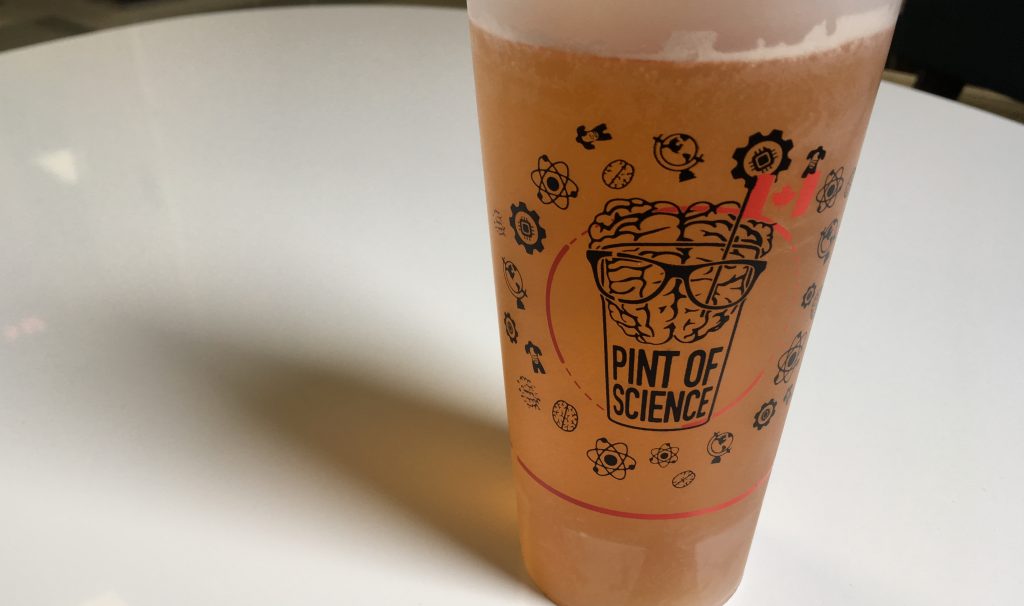Mac researchers chat about science over beers

Pint of Science global science festival makes research and researchers accessible
Over three days in May, across five continents, in more than 300 cities, science finds its way out of the lab and into the pubs for the global Pint of Science Festival – and this year Mac researchers joined in the fun for the first time.
From May 14 to 16, researchers from the faculties of Science and Humanities participated in six events over two venues: The Phoenix pub on campus, and the West Town Bar and Grill on Locke Street. Topics ranged from music cognition to addiction to stellar nurseries as well as others related to the year’s research themes: astronomy, physics and neuroscience.
Organized by Florence Roullet, an assistant clinical professor in the department of Psychiatry and Behavioural Neurosciences, and grad students Sawayra Owais and Thanassis Psaltis, the events were hugely popular, with four of the six talks sold out in advance.
“This is a perfect opportunity to connect with the larger community,” says Owais. “So often, scientists only talk to each other. This is a chance to share some of their discoveries with people outside of academia.”
Kalai Saravanamuttu agrees. The associate professor of chemistry spoke at the Phoenix about her work using unusual types of light waves in computing and to make 3-D printed models.
“Events like Pint of Science force us to pause and come up for air after being immersed in rigorous science all the time, and explain to people outside the field about what we’re trying to do, and why it matters,” Saravanamuttu says.
“We’re conveying our joy in our work and maybe even stimulating an interest in science as a career.”
It’s important for people to know about the tangible change scientific research can bring about, she points out. “These are cool things that could ultimately improve our technology and our world and make people’s lives better.”
At many of the talks, professors and graduate students presented together.
“It’s almost a spiritual experience, knowing that so many people in so many different places are all talking about science at the same time,” says Fiza Arshad, a graduate student working with Iris Balodis, both of whom presented their work on addiction at the West Town. “Addiction is a topic that many people have a personal connection to and strong feelings about, so it’s good to talk about what the scientific evidence actually shows.”
For chemistry PhD student Kathryn Benincasa, who presented at the Phoenix on using unusual types of light waves to increase our field of vision, chatting about her work in a casual, non-institutional setting is an important step towards educating people about what scientists actually do.
“My family has this idea that I’m a mad scientist in a lab coat doing concoctions all day,” she laughs. “Yes, I do experiments, but that’s not all of what research is. Getting out there to talk about my research starts to get rid of that misconception of what we do.”


